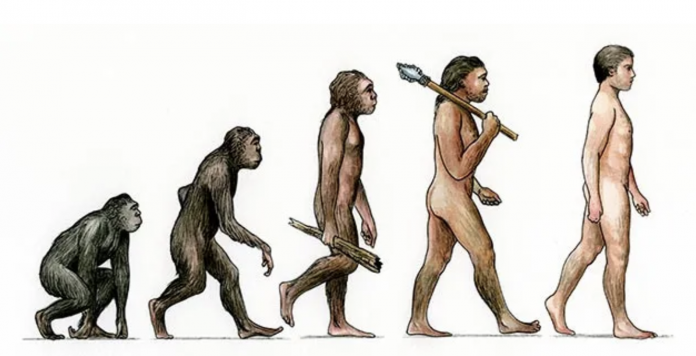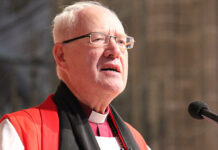On Wednesday afternoon, 6th September 2023, five members of the Church of England met for three hours in a London garden. Two members of the group were unable to join us for this first meeting. They are friends I have made in the course of my ministry in the Church as an activist campaigner and contemplative. When I first suggested that we met in person, I did so because I wanted to know whether each of them thought my ideas and visions were off the wall or accorded with their experience of Christianity today. By the time we met this week I knew my ideas weren’t off the wall..
For several months we have been connected by emails, conversations, and by a series of papers I have written. We agreed that these papers described ideas and concerns about Christianity today that are experienced in one way or another by each of us.
The blog I posted on Tuesday, What is the Christian Story today? was the briefest outline of elements of our thinking. Reactions to the blog and encounters I’ve been having with various groups and individuals tell me that this group of seven are far from being alone in longing for transformation, for the Church to develop a life and vision that will express the essence of Jesus and his teaching in helping to create healthier congregations and networks of people. So many are engaged in activities and practices designed to create health and well being at an individual level. It is time to explore whether this can be converted into a movement within the life of the Christian Church (and of any and all religions and groups, secular and religious, with a similar longing and vision)..
In the course of the coming weeks I will publish some of the other papers I circulated. It has taken me a long time to process my ideas and to condense them into a simple format. Today’s blog is the briefest survey of evolution, Christian origins, Western Church history from the sixteenth century, contemporary crises and possible responses.
A Brief Evolutionary Context for today’s Global and Christian Crises
We start from contemporary a priori knowledge – our context
- The cosmos, the universe, came into being at the Big Bang, 13.7 billion years ago
- Dimensionally, the universe is 13.7 billions of distance in space/time terms
- Evolution – everything has evolved and continues to evolveIn physics, the uncertainty principle, relativity and complexity are basics
- Quantum theory states that fields and energy are more fundamental than matter. Energy is a dynamic quality associated with activity or process
The Bible
- The Bible is a heavily edited collection of texts, narratives, history, myth, poetry, wisdom, law,
- Mark is the earliest gospel, Matthew and Luke edited earlier material plus Q, John’s gospel is of an entirely different character and theology with material unique to him
- Matthew and Luke’s birth narratives are myths
- It is impossible to synthesise the different crucifixion and resurrection narratives into a coherent historical narrative
- Oral narratives of resurrection events were developed and shared for thirty years following the event
- Luke/Acts and Paul’s letters dominate the accounts we have of the early Christian movement
- Accounts of the early Christian communities and movements that spread east and south from Palestine are absent from the New Testament. They had their own distinct theology and character. We assume Western Christianity is alone orthodox and authoritative
Western Church history from the C16th
- Between C15th and C17th people in the West started to see themselves as individuals. Luther.
- Reformation – new ways of considering God and salvation
- Calvin. The God of the Bible ceases to be a symbol of transcendent reality and becomes a cruel and despotic tyrant
- C16th. The West evolved a different kind of society and a new ideal of humanity affecting its perception of the role and nature of God
- Copernicus, Galileo, and Kepler, era of scientific investigation and new theories about the nature of the universe. Dangerous revisionists to the church
- C17th Rene Descartes attempted an account of human knowledge based on radical scepticism, the systematic questioning of everything, finding the cosmos to be Godless
- Deism rejected mysticism and mythology declaring allegiance to the impersonal ‘Deus’ which could be discovered by human effort
- C18th, Industrial revolution, a wave of religious fervour, the Great Awakening, born-again Christianity
- Reimarus asked: What if Jesus of Nazareth and the Jesus of Western history and thought are not the same?
- The Age of Reason, Western Christians committed to a literal understanding of faith, taking an irrevocable step back from myth. A story was either factually true or it was a delusion.
- C19th Schleiermacher, the Father of liberal theology, self-consciousness in a deep religious sense becomes God-consciousness
- Nietzsche, a radical shift in Western consciousness made it increasingly difficult to believe in the phenomenon described as ‘God’, thus, the death of God was the sign of human liberation.
- C20th, Darwin, Freud, Einstein, Jung, Schweitzer (Quest for historical Jesus), 1895 Niagara Protestant inerrancy conference, Existentialism, Heisenberg, Bultmann and Barth, Rahner and Balthasar, Tillich, Bonhoeffer, Teilhard, Fundamentalism, Honest to God . . .
- The Anglican C21st gender and sexuality debates, decline in the West, Global South fundamentalism, and contemporary experiences of Christian life and faith take place in the disturbing context of:-
Contemporary Global Crises
- Global climate crisis
- Global species crisis
- Global energy crisis
- Global human anxiety and insecurity crisis
- Global immigration and refugee crisis
- Global food crisis
Contemporary Church Crises
- Declining numbers
- Systemic abus
- Prejudice and discrimination towards women
- Prejudice and abuse of black, disabled people
- Prejudice against and discrimination towards LGBTQIA+ people
- Adherence to theologies that for four centuries have become increasingly unbelievable
- Lack of people with wise, prophetic courage
Contemporary Responses
- Developing inner awareness, inner life and depth, reflection, greater consciousness
- Taking personal responsibility for our life and engagement with transformation and change
Contemporary Church
- How is or can the Church be reconfigured to respond to today’s crises in ways congruent with Christian essentials as witnessed in Jesus’ life and teaching?
- How do we develop a seamless, holistic, spiritual, integrated world view?
- How do we create a contemporary Christian life based on “life in all its fullness”?
- How do we foreground “Love God, Love your neighbour, Love yourself”?
- How do we make primary the realities of love, justice, truth, wisdom, goodness, and compassion, overcoming abuse, prejudice and discrimination in the Christian Church?
- How do we configure “incarnation”, the human and divine dimensions of reality in the cosmos, a seamless creation, earth, the universe and “heaven”?
- How to foreground Jesus as the synthesis of human and divine mystical presence with which humankind is endowed and which we are called to embody – self-giving love?
- Jesus lived and exemplified the seamless unity of love, human and divine, within creation, the universe and evolution, but religions suppress and control the divine with creation, within life, and within humankind, contributing to anxiety, insecurity, neurosis and abuse.
- How do we live ‘as if’ these creative imaginings, this comprehension of God, is truthful to Jesus’ vision and truthful to our era, to the sacred and divine in creation and in human lives?
- What are we doing to do to transform the present and future from a prophetic Christian perspective?
First printed at Unadulteratedlove



